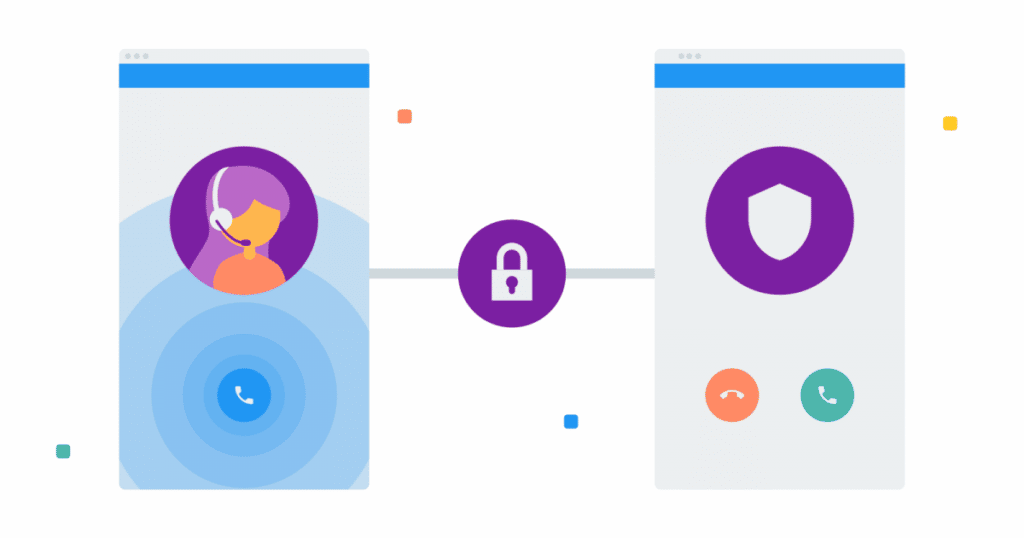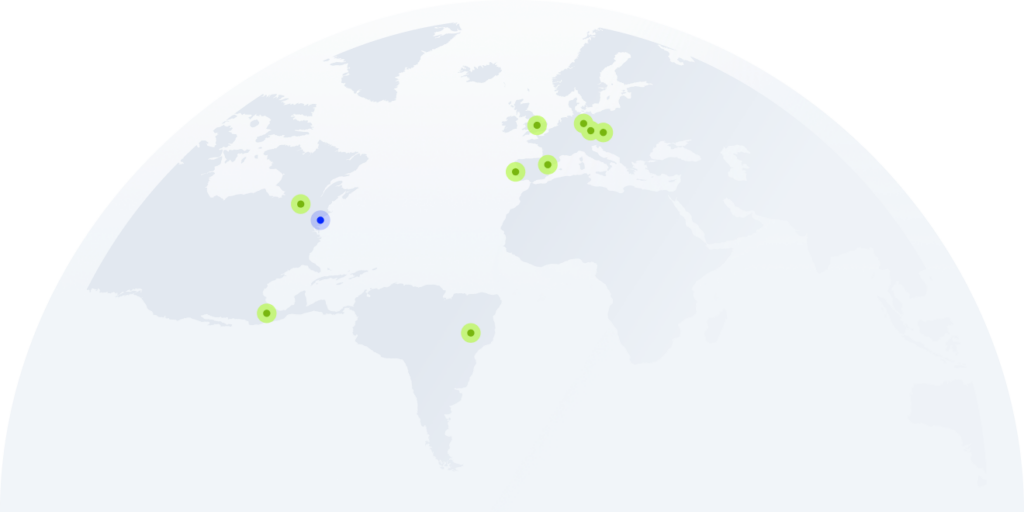CloudTalk Insider #1: What is Call Masking?

Call masking is frequently used by businesses nowadays to ensure the privacy of their and their customers’ data. Why is it important and how can you use call masking in your company?
If you asked business owners or users what their biggest worry is nowadays, there’s a good chance they would say “data privacy”. Compared to the past century, when phone numbers were only exchanged between close friends or family members, now we use our contact details far more often – from shopping online, through confirming bank actions, to registering for services.
If your phone number is given out carelessly then at best you might just receive some strange calls or promotional offers, but at worst it could be used by hackers to break into a bank account, email inbox, or social media profile.
That’s why customers are not that keen on handing their phone number to other companies – according to a Pew research survey…
- 79% of respondents said they were very or somewhat concerned about how the data collected about them was being used
- 81% of respondents felt as if they had little or no control over data collection
What might be even more worrying is that 79% of Americans are not confident about how companies will behave when it comes to using and protecting their data. Of those, seven-in-ten said they weren’t confident that companies would admit if they made a mistake in handling their personal data or take responsibility for misusing or compromising it.
In another survey, 54% said they are highly likely to walk away from a business that requires them to provide highly personal data such as email addresses or phone numbers.
But plenty of companies, such as transport services, food delivery companies, and marketplaces do need customers’ phone numbers in order to confirm the customer is at home to take a delivery or to inform them about the location of a taxi, for example.
How can those companies quickly and easily communicate with their customers while respecting the need to protect their phone numbers?
Modern contact center solutions do have an answer to this dilemma – a call masking feature.
What is call masking?
Typically, when someone requests a cab ride or a delivery service, they have to provide their phone number so that the drivers or couriers will have a way to reach them. Without it, how could you contact the provider if an ordered service was late and get an explanation?
Well, giving out your phone number to the company is no longer necessary nowadays – major companies such as Uber are now using call masking to create anonymous, disposable phone numbers that hide both employees’ and clients’ personal contact details, ensuring they can reach out to each other safely, quickly, and efficiently. How?
Using the call masking feature, companies can hide their real phone number behind a disposable one that is created by the contact center system, and then call or text customers using it.
Instead of being connected directly, the caller and recipient are connected to one another through a proxy bridge. While the employee and customer are still phoning each other on their real numbers, the recipient sees a proxy generated phone number as the Caller ID – hence the term “call masking.”
The masked phone number is fully functional for a set amount of time, so both parties can use it to make calls or send text messages during that period. After the time limit passes, the phone number expires and is returned to the pool of available phone numbers for the company to use, before later being reassigned to another person.
Such a communication method is ideal for businesses that have to share customer data with 3rd parties, but don’t want to expose their or their customers’ real information. Since the feature hides both the caller’s and recipient’s actual phone numbers, there’s no risk that the client’s or employee’s phone number will leak and be misused later.
The masked phone number is in no way different from a regular one. Let’s say you order a shipment by courier and receive a text message with the phone number for them…
- You can use the given phone number to schedule the delivery time when you will be at home, and they can later use the same phone number to inform you when they are nearby.
- After the courier arrives and delivers your package, the phone number will stay active for some more time (typically until the end of the courier’s shift) so that you could, for example, call to say if the package was damaged and discuss how to solve the problem.
- After the courier’s shift ends, the phone number will expire and later be reassigned to another courier.
What are the benefits of call masking?
For companies that rely on short-lived communication between employees and clients (such as delivery companies, transport services, marketplaces, or medical centers), call masking is an excellent way to protect both their and their customers’ personal information without getting in the way of efficient communication.
Whether a cab driver wants to send a text message to the rider with the stop location, or a customer wants to reach the courier because their food is late, both parties can quickly speak to each other through masked numbers as if they were using their regular ones. Since the number is still active some time after the service is finished, contact is still possible later in case of any issues, such as luggage left inside a cab or receipt of a damaged product.
Call masking also can greatly help businesses in building customers’ trust and confidence in the brand, as the assurance that their private phone number is hidden makes them more comfortable using the company’s service (there’s no risk their phone number will be misused later) and also more likely to return to that company in the future.
Using call masking can also give some peace of mind to employees, who won’t have to worry about receiving some unwanted calls.
Using masked numbers also allows you to easily record, track, and analyze all of the conversations that your couriers or drivers make during the day, which would be entirely impossible if they used their private numbers for work. This way, you can monitor all their interactions with clients, learn how they deal with various problems at work (such as rude customers), and suggest ways in which they can improve their communication with clients.
Where can call masking be the most useful?
While virtually all industries can benefit from using masked calls during their communication with customers, there are some industries that might find a call masking feature especially handy – both to enhance the customer experience and to guarantee the safety of their own personal information. Which ones?
#1 Delivery services
During a food delivery or product shipping, couriers and recipients need a way of contacting each other, if only for confirming that the recipient is at home and can take the order. But it could also be that the courier arrives at the wrong location, in which case having a phone number for the recipient allows the courier to quickly make contact and ask the correct address.
But there’s no need for either of them to reveal their own phone numbers for such a short service. Call masking helps both parties get in touch with each other quickly without exposing their personal contact details.
#2 Transportation/ride-sharing services
Call masking will help drivers and passengers call and arrange rides without sharing their personal numbers. This is incredibly important for ensuring both the driver’s and the passenger’s safety, as they can reach out to each other without worrying that their phone numbers will be misused later (especially during times when phone harassment has become disturbingly common). Plus, if the passenger leaves an item in the driver’s car, they can both get in touch with one another without giving away their real phone numbers.
#3 Marketplaces
With masked numbers, buyers and sellers can easily get in touch and trade their products without the risk of being harassed by unwanted calls later. Also, using call masking will prevent transactions from being completed away from the selling platform.
#4 Healthcare
While it’s important for healthcare professionals to be available to their patients, they might not want to give out their personal numbers. Call masking allows patients to call their doctors or physicians directly, without the risk of their phone numbers being misused (for example, being given to other people without the owner’s consent).
Would you like to learn more about Call Masking? Contact our CloudTalk experts.
Conclusion
For companies that handle such sensitive data as personal phone numbers on a daily basis, using call masking is the best way to show that you take data privacy and security seriously.
People value their privacy and anonymity increasingly more, so providing them with a way to protect their personal information will not only make them feel more at ease while doing business with you, but it might also be something that will make you stand out from the crowd and convince customers to choose your brand.
With CloudTalk, protecting your privacy has never been easier, so why not start 2021 by implementing call masking in your company?















